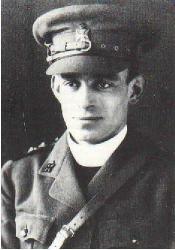Planning worship?
Check out our sister site, ZeteoSearch.org,
for 20+ additional resources related to your search.
- |
User Links
Search Results
Not Here For High and Holy Things
Author: Geoffrey Anketel Studdert Kennedy Meter: 8.6.8.6.8.6 Appears in 3 hymnals
Not Here For High and Holy Things
TUA REDDIMUS, DOMINE
Appears in 1 hymnal Composer and/or Arranger: F. G. Russell Incipit: 56176 55551 65345 Used With Text: Not here for high and holy things
TUA REDDIMUS, DOMINE
MORNING SONG
Meter: 8.6.8.6.8.6 Appears in 170 hymnals Composer and/or Arranger: Elkanah Kelsay Dare, 1782-1826; Charles Winfred Douglas, 1867-1944 Tune Key: A Flat Major Incipit: 51234 32175 51234 Used With Text: Not here for high and holy things
MORNING SONG
Not here for high and holy things
Author: Geoffrey Anketel Suddert-Kennedy, 1883-1929 Hymnal: The Hymnal 1982 #9 (1985) Meter: 8.6.8.6.8.6 Languages: English Tune Title: MORNING SONG
Not here for high and holy things
Not here for high and holy things
Author: G. A. Studdert-Kennedy Hymnal: The Church and School Hymnal #227a (1926) Languages: English Tune Title: TOLVADDEN
Not here for high and holy things
Not here for high and holy things
Author: G. A. Studdert-Kennedy Hymnal: The Church and School Hymnal #227b (1926) Languages: English Tune Title: TUA REDDIMUS, DOMINE
Not here for high and holy things
Winfred Douglas
1867 - 1944 Person Name: Charles Winfred Douglas, 1867-1944 Harmonizer of "MORNING SONG" in The Hymnal 1982 Charles Winfred Douglas (b. Oswego, NY, 1867; d. Santa Rosa, CA, 1944), an influential leader in Episcopalian liturgical and musical life. Educated at Syracuse University and St. Andrews Divinity School, Syracuse, New York, he moved to Colorado for his health. There he studied at St. Matthew's Hall, Denver, and founded the Mission of the Transfiguration in Evergreen (1897). Ordained a priest in the Episcopal Church in 1899, he also studied in France, Germany and England, where he spent time with the Benedictines of Solesmes on the Island of Wight from 1903 to 1906. For much of his life, Douglas served as director of music at the Community of St. Mary in Peekskill, New York, and had associations with cathedrals in Denver, Colorado, and Fond du Lac, Wisconsin. He promoted chanting and plainsong in the Episcopal Church through workshops and publications such as The American Psalter (1929), the Plainsong Psalter (1932), and the Monastic Diurnal (1932). His writings include program notes for the Denver Symphony Orchestra, various hymn preludes; organ, as well as the book, Church Music in History and Practice (1937). He was editor of both the Hymnal 1916 and its significant successor, Hymnal 1940, of the Episcopal Church. Douglas's other achievements include a thorough knowledge of the life and culture of Hopi and Navajo natives, among whom he lived for a number of years.
Bert Polman
Winfred Douglas
Geoffrey Anketel Studdert Kennedy

1883 - 1929 Person Name: Geoffrey Anketel Suddert-Kennedy, 1883-1929 Author of "Not here for high and holy things" in The Hymnal 1982 Born with Irish heritage to the vicarage in a deprived parish in Leeds. Studdert Kennedy got into Trinity College Dublin at the age of 14, though poverty meant he did not attend until later, graduating with a First Class degree. He was a popular teacher at Calday Grange Grammar School on the Wirral Peninsula before entering the Anglican Ministry; ordained in Worcester Cathedral in 1908 and married in 1914. He worked in deprived parishes: in Rugby, with his Father in Leeds and St Paul's in Worcester. He was known for his forgetfulness, his generosity (he famously gave away the marital bed to an old lady in need recruiting his wife to help carry the mattress) and his plain speaking.
He became a military chaplain (AKA the Padre) in 1915. He spent time with the men waiting to go to the Front speaking with them and offering to write letters home. He carried a large canvas sack of New Testaments and Woodbine Cigarettes to distribute, often staying on the trains up to the front well after they had left the station earning great popularity and the affectionate nickname Woodbine Willie. In 1917 he was awarded the Military Cross for fetching morphine for a first aid post on the Front while under bombardment and repeatedly going to help the wounded or bury the dead in No Man's Land. During the war his first collection of poetry "Rough Rhymes of a Padre" was published and he achieved widespread national fame. His poems did not shy from the horrors of war or questions of faith raised. He was always on the side of the 'ordinary man'.
After the war he continued in parish ministry before taking an itinerant role with the Industrial Christian Fellowship (still operating) where he proclaimed the gospel and fought for the disadvantaged. He died in Liverpool 1929 intending to keep a commitment despite exhaustion. His memorial in Worcester Cathedral says "A poet: a prophet: a passionate seeker after truth: an ardent advocate of Christian fellowship." His hymns are taken from his collections of verse later anthologised in The Unutterable Beauty (1927).
David L. Gent
Geoffrey Anketel Studdert Kennedy
Kenneth G. Finlay
1882 - 1974 Person Name: K. G. Finlay Composer of "TOLVADDEN" in The Church and School Hymnal
Kenneth G. Finlay


 My Starred Hymns
My Starred Hymns


